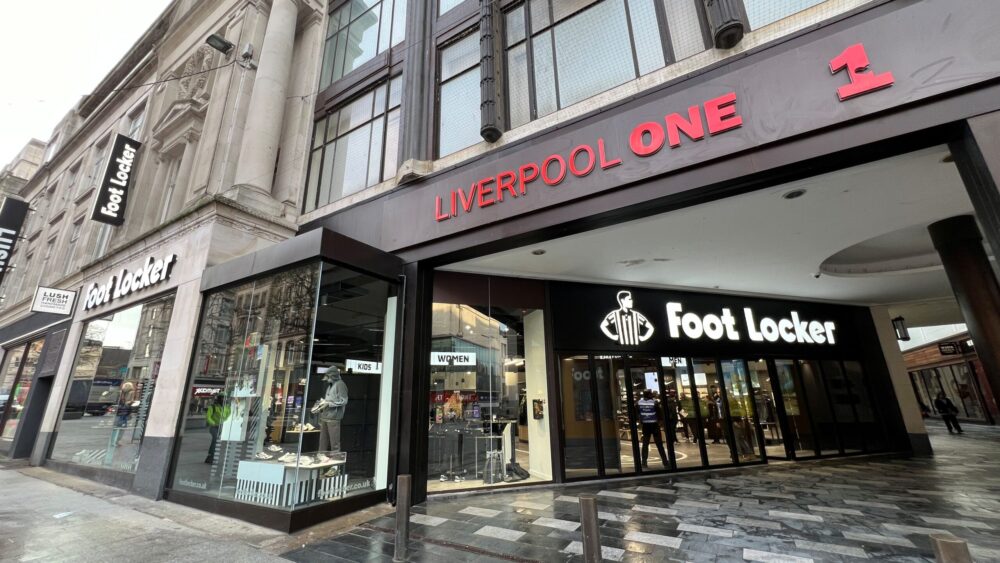
Shopping
Black Friday: The dos and don’ts everyone needs to know
3 years ago

Black Friday is looming – and while some people may be looking forward to grabbing a bargain, others may be worried about the impact the shopping bonanza could have on their already-stretched budget.
Nine in 10 (89%) Christmas shoppers are relying on Black Friday (which falls on November 25) to help them make some or all of their festive purchases this year, according to research from Barclays.
As people in the city get ready for a big Christmas, shops in Liverpool are expected to be taking part in Black Friday, so keep an eye out to see a raft of deals and discounts on the high street and online.
To help people save some cash if they’re looking for a bargain – or swerve the event altogether if they’re worried about the impact on their finances – here are some Black Friday dos and don’ts to keep in mind…
Do
Use price trackers and compare deals
When you’re being bombarded by Black Friday ‘special deals’, it can be hard to work out whether something really is a bargain.
Do some research beforehand. You could make a list of items you particularly want and use price tracking websites to help you work out whether you’re actually being offered a decent discount.
Camelcamelcamel.com, for example, tracks prices on Amazon and sends out price drop alerts. And PriceRunner.com helps shoppers compare prices between different retailers. Many retailers have launched offers way before Black Friday itself, so check what’s already available.

Sign up for offers from your favourite retailers
If there is a retailer you’re already planning buy from, you could try signing up to see if you are offered any extra Black Friday discount codes or deals.
And if you don’t want your usual email inbox to be clogged up with marketing emails, you could set up a separate email to receive these all in one place.
It may also be worth signing into a store’s website and leaving items in your basket for a while, to see if you’re offered discount codes to complete your purchase.
Shave even more money off
If you have found a good deal, try to make it even cheaper by searching for extra voucher codes or using cashback websites such as Quidco and TopCashback.

Consider how you will pay
If you are using a credit card to make purchases, you could check out any points or rewards on offer.
For more expensive purchases, it may be worth considering a credit card which offers 0% interest on spending for a certain period. Make sure you can comfortably clear the balance before interest kicks in.
Some ways of paying, such as PayPal, offer extra protections if something goes wrong.
Don’t
Get carried away
Shopping events such as Black Friday can make us feel like we’re ‘missing out’ if we don’t make a purchase. Some people may prefer to remove the temptation altogether, which could mean unsubscribing to retailers’ emails that have been previously signed up to.
Buy-now-pay-later offers and credit cards can help to spread the cost of purchases, but it’s also important to be mindful that it may be tempting to buy items that aren’t really needed.
If you’re prone to impulse spending, maybe try taking a break before completing a purchase to consider whether you really need it and what impact it will have on your overall budget.
Overlook refurbished versions of the items you want
Buying refurbished instead of brand new can significantly cut the cost. Both eBay and Amazon, for example, have sections on their websites where shoppers can search for refurbished goods. EBay says eight out of the top 10 Black Friday deals sold on eBay UK last year were refurbished, with Dyson products, Simba mattresses and iPhones being particularly popular.
In general, before buying refurbished items from anywhere, it’s worth checking exactly what condition the item is likely to arrive in and any guarantees that are being offered by the retailer.

Take chances
Scammers will use Black Friday as an opportunity to strike, so watch out for phishing emails with dodgy links, unfamiliar websites offering deals which are too good to be true, and websites which are cloned to look like those owned by trusted retailers. High living costs may make it particularly tempting to take a risk, but ask yourself whether it’s really worth it.
Forget about your consumer rights
If you are paying by credit card, you may have additional protections under Section 75 of the Consumer Credit Act, which enables people to put in a claim to their credit card company if goods or services costing between £100 and £30,000 are shoddy or are not received.
This may be a useful protection if the retailer is being unresponsive or has gone out of business.

You can make a claim for the full cost of the item or service, even if you only made a part-payment on your card, such as putting down a deposit.
MoneySavingExpert.com has tools to help people make a claim at – search ‘Section 75 refunds’ on the website for details.
Shoppers also have certain consumer rights, which may vary depending on whether the item was bought in a physical store or online.
Under the Consumer Rights Act 2015, products or services should be of satisfactory quality, fit for purpose and as described. Rights to a refund, repair or replacement change as the time from making the purchase goes on.
Online shoppers may also be covered by the Consumer Contracts Regulations, which give the right to cancel an order up to a fortnight after delivery. The Government-backed MoneyHelper.org.uk has information about consumer rights.










 Subscribe
Subscribe Follow Us
Follow Us Follow Us
Follow Us Follow Us
Follow Us Follow Us
Follow Us Follow Us
Follow Us











